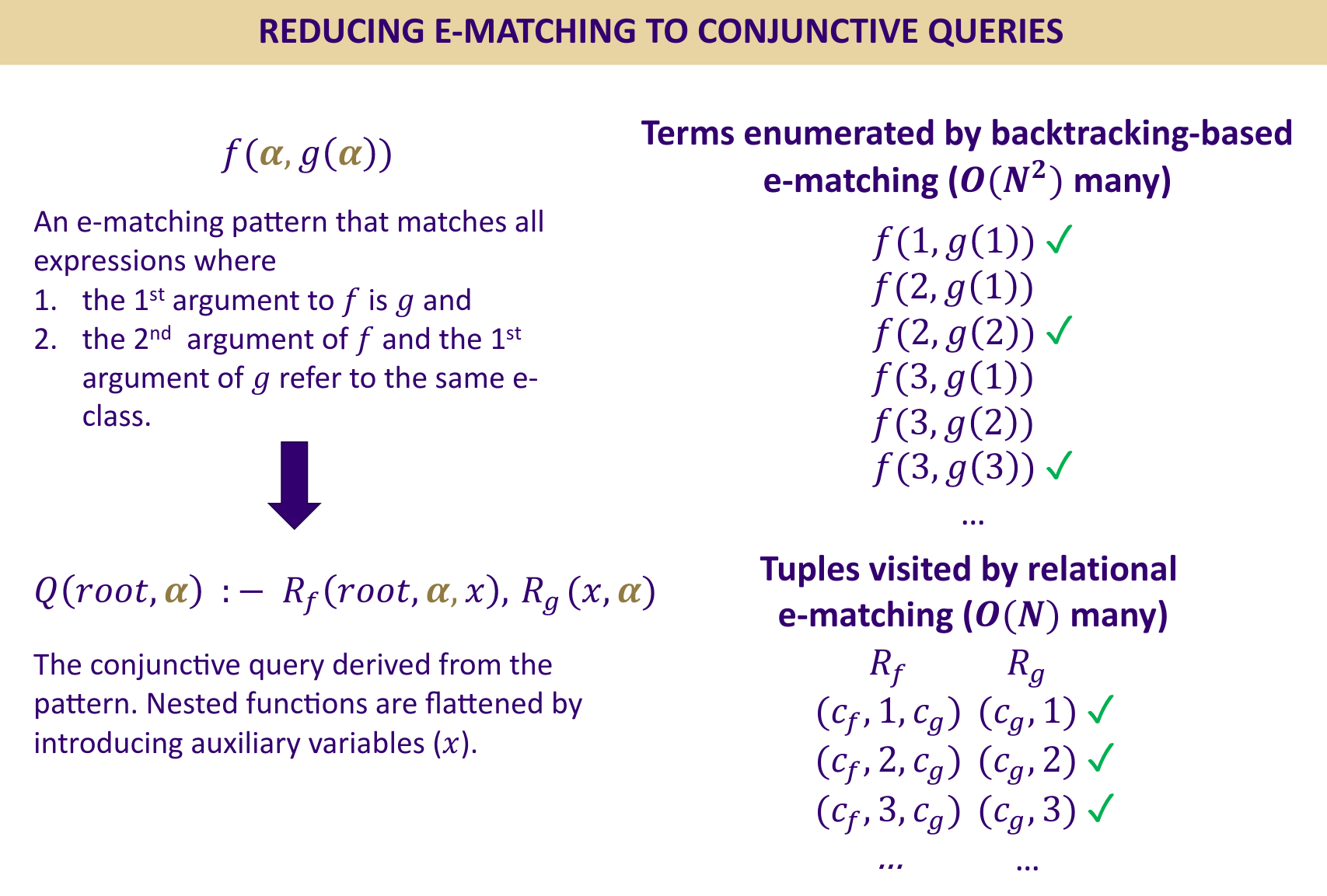Relational E-Matching
BibTeX
@article{relational-ematching,
author = {
Zhang, Yihong and
Wang, Yisu Remy and
Willsey, Max and
Tatlock, Zachary
},
title = {Relational E-Matching},
year = {2022},
issue_date = {January 2022},
publisher = {Association for Computing Machinery},
address = {New York, NY, USA},
volume = {6},
number = {POPL},
url = {https://doi.org/10.1145/3498696},
doi = {10.1145/3498696},
abstract = {We present a new approach to e-matching based on relational join; in particular, we apply recent database query execution techniques to guarantee worst-case optimal run time. Compared to the conventional backtracking approach that always searches the e-graph "top down", our new relational e-matching approach can better exploit pattern structure by searching the e-graph according to an optimized query plan. We also establish the first data complexity result for e-matching, bounding run time as a function of the e-graph size and output size. We prototyped and evaluated our technique in the state-of-the-art egg e-graph framework. Compared to a conventional baseline, relational e-matching is simpler to implement and orders of magnitude faster in practice.},
journal = {Proc. ACM Program. Lang.},
month = {jan},
articleno = {35},
numpages = {22},
keywords = {E-matching, Relational Join Algorithms}
}
Abstract
We present a new approach to e-matching based on relational join;
in particular, we apply recent database query execution techniques to guarantee worst-case optimal run time.
Compared to the conventional backtracking approach that always searches the e-graph “top down”,
our new relational e-matching approach can better exploit pattern structure
by searching the e-graph according to an optimized query plan.
We also establish the first data complexity result for e-matching,
bounding run time as a function of the e-graph size and output size.
We prototyped and evaluated our technique in the state-of-the-art
egg e-graph framework.
Compared to a conventional baseline, relational e-matching is simpler
to implement and orders of magnitude faster in practice.
